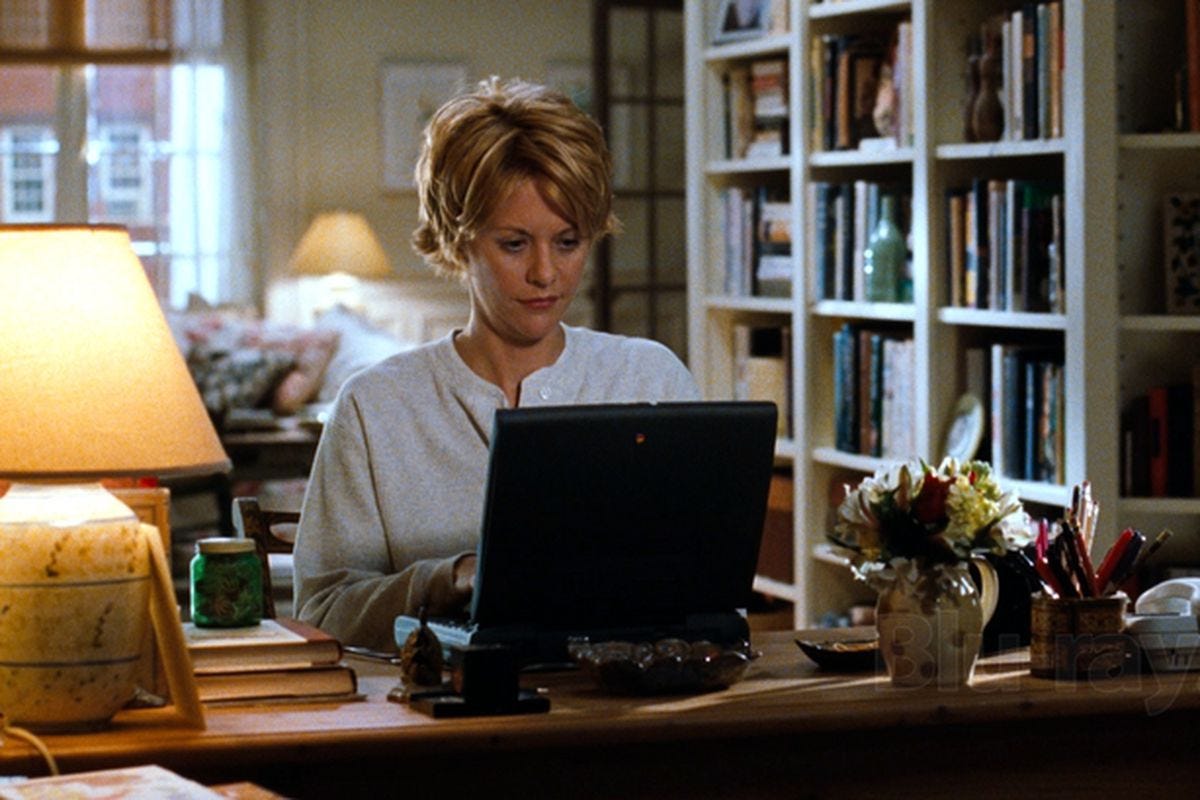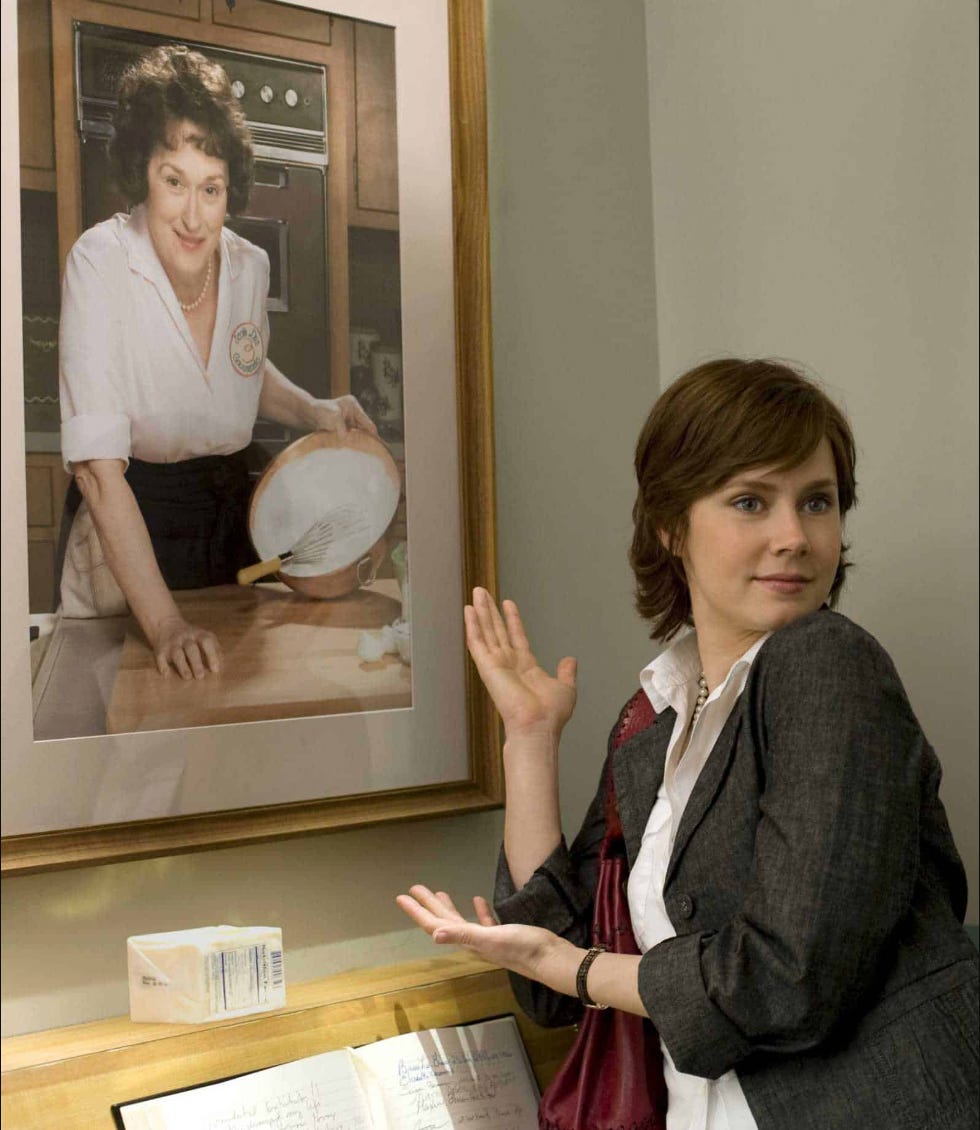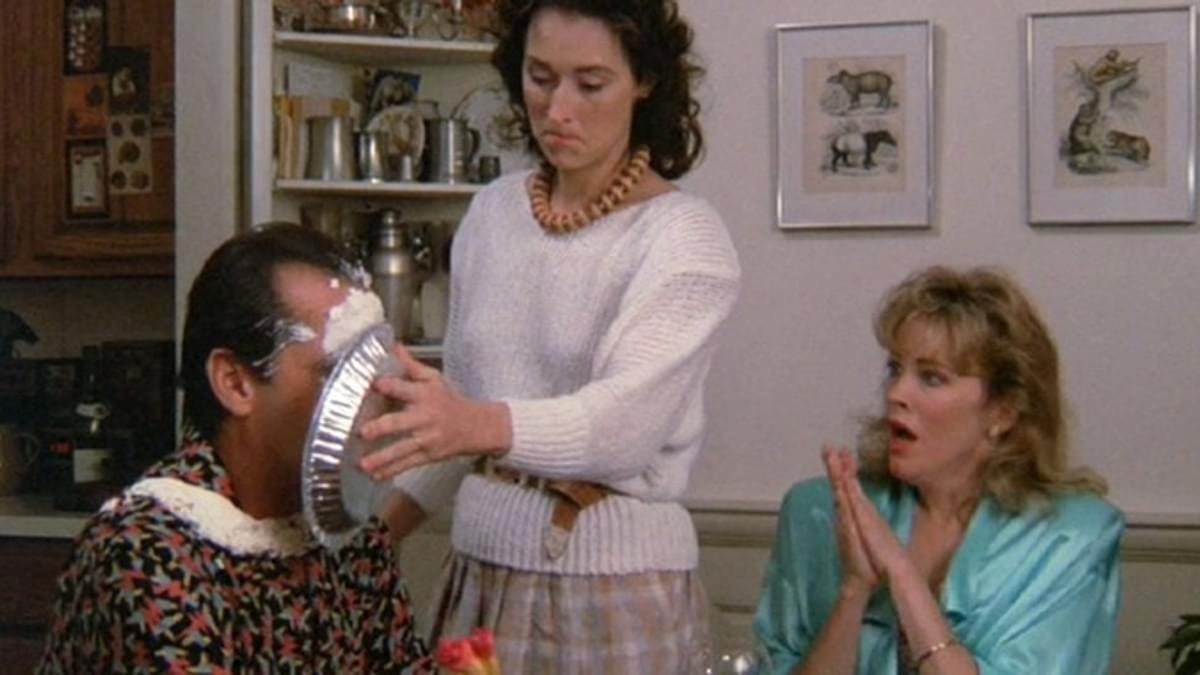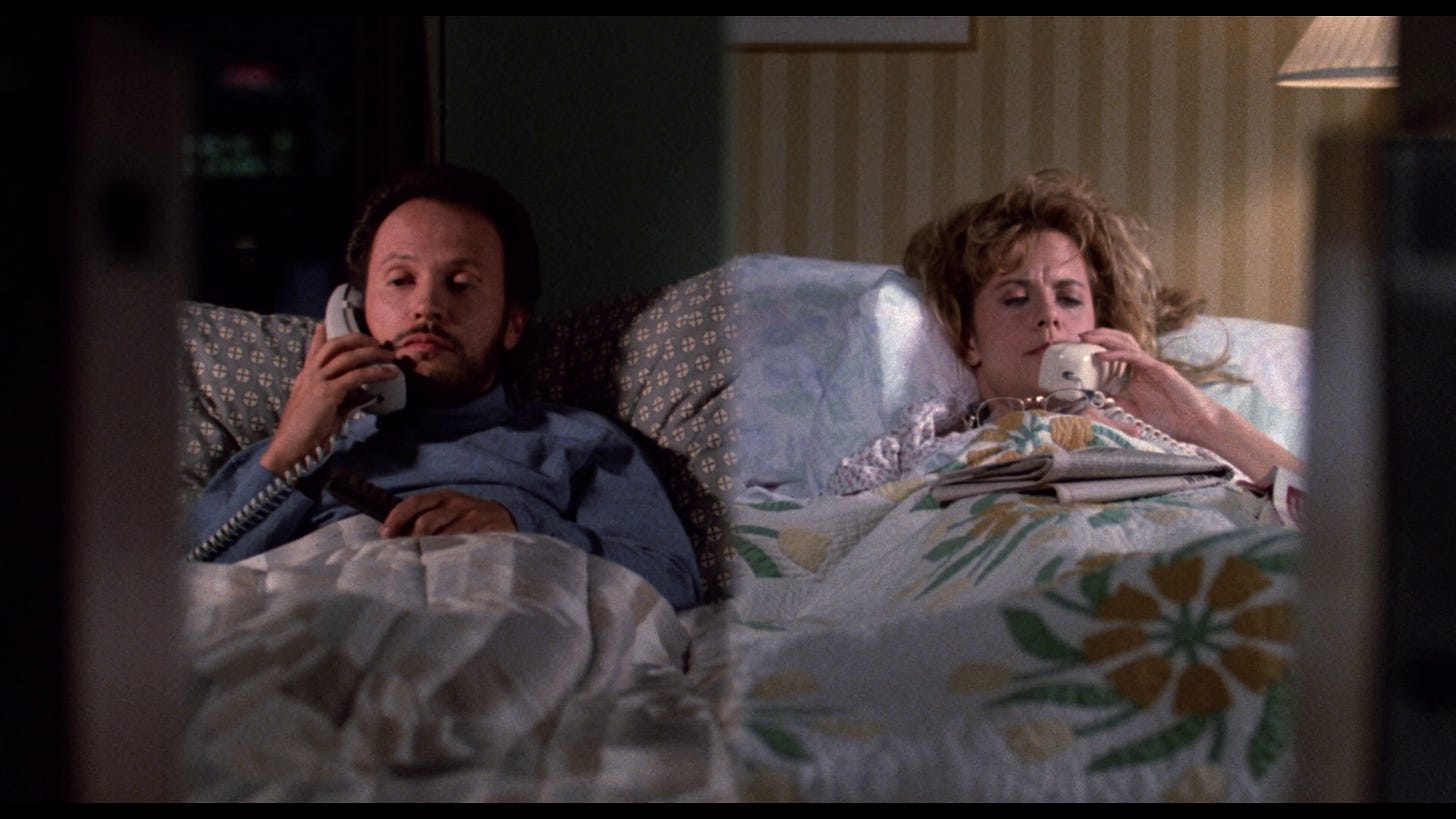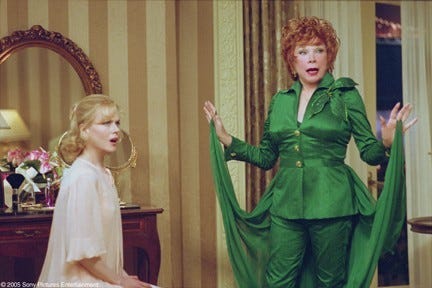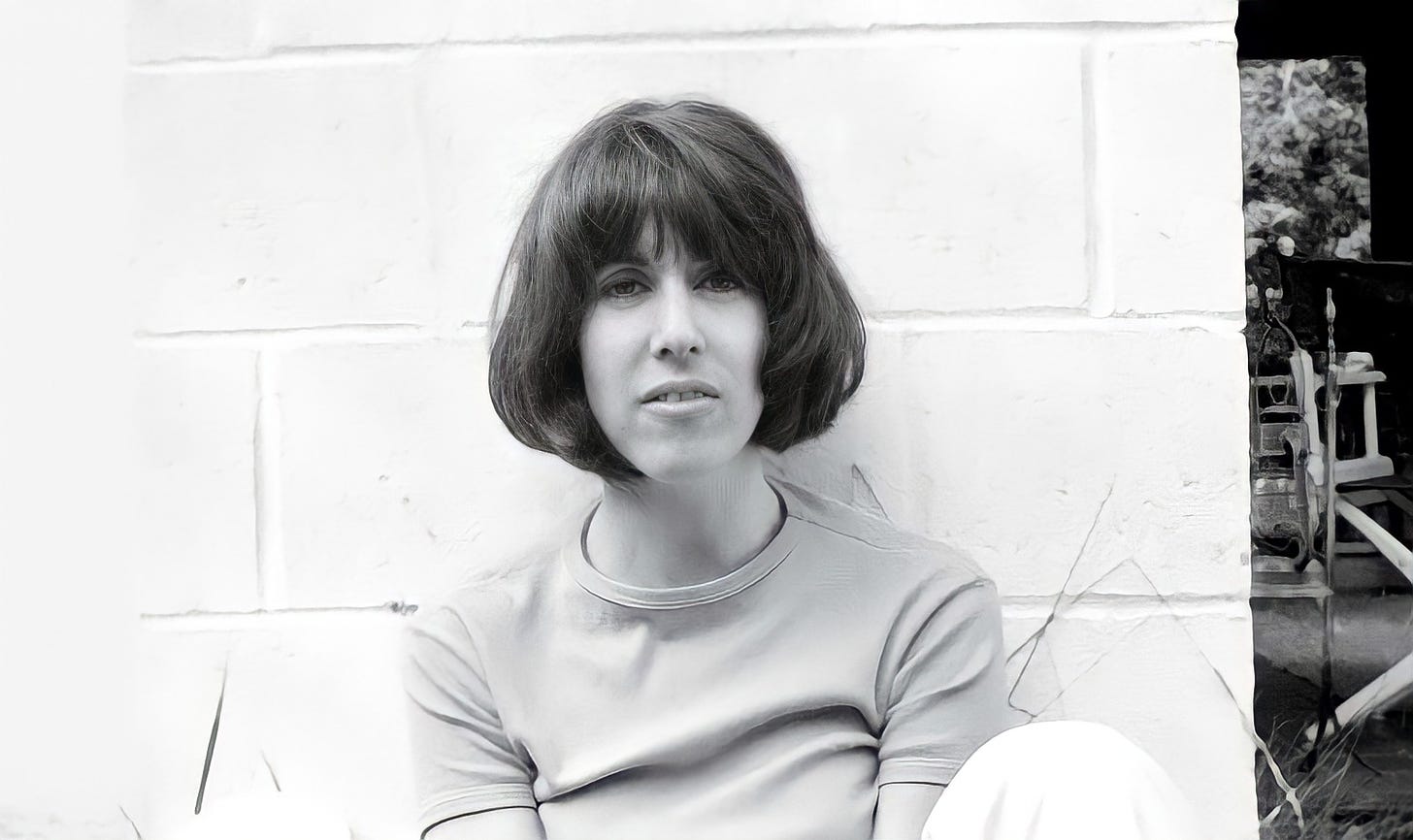“Everything is copy” and other truths about romance
On love, performance, and learning to live a life (mostly) unedited
In my head, Nora Ephron is my best friend, my mentor, my cool great-aunt. I adore her—her books and films, her humour, her way of taking every heartbreak, every awkward moment, and turning it into something to laugh at and share with the world. There’s this unfiltered honesty in her work that makes me feel like I’m sitting across from her at lunch in some delightful diner on the Upper West Side, trading stories of romances gone sour, existential crises… all the ridiculous little moments which make life feel so, well, alive.
Nora’s essays and films were my introduction to the idea that the chaos of love and life could be shaped into something more—a story, a punchline, a way to make sense of what feels senseless. While all her work has heavily influenced me, one particular phrase written by Nora in a 1973 column for Esquire has dictated how I live my life: “Everything is copy.” (I love this quote so much I’d get it tattooed on my forehead if I could, though I haven’t yet found a stick-’n-poke artist who wants to take me—or the disembodied advice of Nora Ephron—on as a client. DM me if you’re interested.)
Why this phrase speaks to me—why it’s shaped me so—is because, embedded within the simplicity of “Everything is copy” is the comforting knowledge that every mess has the potential to become material, that the drama can become dialogue. It’s a sentiment I’ve clung to for a long time, treating the worst moments of my life, of dating like scenes in a film or play, with me (like Nora, if you’ll indulge me in that comparison) as both the protagonist and the scriptwriter.
Lately, though, I’ve been analysing my allegiance to this phrase, wondering what happens when something doesn’t quite fit into the narrative structure? When it doesn’t feel like “copy” in the usual sense, but more like incoherent scribbles in a journal—full, messy, and real?
This essay was born out of those thoughts—a way of trying to understand my relationship with love, life, and the performance of it all. And, of course, how Nora Ephron’s idea of “everything is copy” still plays a part in the way I see the world, even as I try to let go of the constant editorialisation I do with my own life as a writer, a woman, and, well, as a person.
FOR ONE NIGHT ONLY! COME SEE THE ONE-WOMAN SHOW AT THE ROMANCE THEATRE!
It’s almost embarrassing to admit how much of my dating life has been about proving something—to myself, to the person I’m with, and maybe, worst of all, to the outside world.
There’s a thrill in the chase, in trying to get someone to fall for you. But really, for me, the chase is often about putting on a performance: showing just enough mystery, humour, and “effortless” confidence to be seen as desirable. It’s this constant balancing act, showing curated fragments of myself to prove I’m worth loving. Meanwhile, the real me hides backstage, peering from behind the velvet curtains of this Romance Theatre, hoping my script and performance is good enough to keep them interested.
What I’ve started to realise in the past month is that what I’m chasing after—my performance—is an illusion. In my relationships, I noticed that I cast myself as the person they think I am, or—and here’s a darker thought—the person I wish I could be. It’s exhausting, all this editorialising, all this playacting.
I realised, too, that if someone’s affection feels like a reward for which I must perform, then it was never truly mine to begin with. And even if I do “win” them over, what have I really won? More moments of feeling like I’m looking out on an austere audience, wondering if I’m enough and hoping I’m still doing a good enough job at playing the role I wrote for myself in the beginning.
In the not-too-distant past, I convinced myself that if I could just get someone to like me after they’d pulled away or seemed distant, it meant I was worthy. Their approval was some badge of honour, proof that I was good enough, cool enough, whatever “enough” I needed to be. But that’s not love—that’s a cycle of insecurity. It was really about the constant effort of trying to make my performance the highlight of the story.
I’ve dated men who have enjoyed my scripts and applauded my performances of my self-worth. And yes, the adrenaline that comes with this praise is seductive—the push and pull, the games of getting someone to text back, the chemistry that comes from withholding and wanting.
Once I’ve stepped out of the spotlight, though, I start to see things more clearly. When someone yells CUT! or the final page of my romantic magnum opus about some guy is read, I become conscious of the fact that my relationship was really about how well I played my part and that, most of the time, I never quite considered if I wanted that role at all.
Aaaaaand… SCENE!
EVERYTHING IS COPY BECAUSE AT LEAST THAT WAY THERE’S SOMETHING TO TALK ABOUT
And here’s the thing: I know that it’s a potentially sad, certainly twisted admission to say that I’ve treated almost every relationship like a scene in a movie I was writing or a chapter I was living. I cannot tell you the number of times I’ve caught myself saying, “Well, at least it’s copy”—because, well, at least there’s something to talk about.
In hindsight, I think this editorialising has been a coping mechanism, really—a way to reframe the painful moments into something that felt meaningful. Each guy I dated brought out a different story I could tell about myself, a different persona I could take on for the role of a lifetime—ones that I could mould and shape to fit the narrative I wanted to tell myself and those perceiving me.
With Max*, I became the effortlessly “cool” indie girl—aloof, grungy, with just enough mystery to keep things interesting. With Will, I leaned into the carefree, bohemian vibe he oddly assumed of me—a girl who floats through life, untouched by worry, somehow a mix of wild and refined. And with Théo* and Hugh*, I was the effortlessly “Oh, She Lives Abroad” girl, the American who just “got” European life, navigating the quirks of The Continent with wit and charm.
This isn’t to say I’m like Sally Field in Sybil. No, these personas—the “cool” girl, the boho free spirit, the insufferable American woman abroad—are all fragments of myself. But they’re not me, Antonia, the whole person. I realise now that, through this cherry-picking of my identity, I was actually rewriting who I really am, moulding myself into whichever character fit in best with the man I was dating at the time—or at least, what I thought would make narrative sense to him and, perhaps more importantly to me—which I know is sort of vile to admit—our observers.
Indeed, treating everything as real-time “copy” turned my relationships into performances. They weren’t just about us—me and whoever I was with—but about how we seemed to everyone around us. My romance with a man became a show, a story I could tell my friends. Declaring that “everything is copy” meant that every heartbreak, every fling, could mean something. I could make sense of my relationships—or, at the very least, craft a great narrative about it.
My hiding behind Nora’s phrase gave me the explicit permission to force my relationships into some greater narrative arc of my life, even if it meant pretending my relationships and I were okay when we weren’t, even if it meant playing up some idealised version of myself to keep the story interesting. By chalking everything up to being “copy”, I avoided the mess, the chaos, and the discomfort of not knowing where things would go and if I was actually “enough”. I never had to take on the very real, very scary reality—not a script, not a performance—of actually being myself. Spooky.
DAYDREAMING UNDER THE FLUORESCENT LIGHTS OF THE SOUTHBOUND NORTHERN LINE
All this said, there’s something distinct about my relationship with Milo*. With Milo, everything feels... real. It’s still early on, but our connection feels different. Earlier this week, I realised that I haven’t had the urge to editorialise myself or to turn our relationship into “copy”. It’s disorienting, this new feeling of being seen without needing to dazzle or impress. I catch myself, moments when I’m with him, feeling simply present—without the need to script or shape what’s happening.
I’ll confess that with Milo, I still find myself in cinematic moments and, yes, I have put on a little performance here and there—there’s no denying that. But I suppose the difference is that I’m not crafting the story as it unfolds or how our moments will play out as a story to tell later. There’s an ease to how we fit together, a sense that I don’t have to write myself as a certain “character” for him. The narrative writes itself, and, for the first time in the history of my romantic life, I’m just living through it instead of thinking about how I’ll write about it.
Of course, I know that this last bit is slightly oxymoronic, because by writing this piece (and even my writing about a date we went on a few weeks ago, wherein I recounted the story of my downward spiral following a question I asked involving Daniel Day-Lewis and sex), I’m acknowledging my relationship with Milo as a kind of “copy”—but it’s “copy” that feels more like living than performance. This time, I am not dancing on stage, reciting lines I’ve written for myself in front of Milo, member of that austere audience at the Romance Theatre.
This time, my romance is not just about how he sees me; it’s about how I see myself when I’m with him. Smart, funny, strange—everything I am just gets to exist, without the pressure to package it up nicely. For once, it’s not about making those qualities fit neatly into some script—it’s about letting them breathe.
It all feels genuine—the moments we share are happening for us, not for anyone watching. With him, I feel as if I’ve finally retired from the stage, a dozen bouquets in my dressing room. There are no calls for an encore for the one-woman show of my fragmented “cool”-boho-abroad-et cetera personality written for him and my external audience.
I’m superstitious, so I don’t want to jinx it, but, God, I’m telling you—it feels like more than copy. I find myself daydreaming about the little things—being delayed at an airport, waking up late together, sitting side by side under the hideous fluorescent lights of the Northern line—instead of the far-fetched possibilities of how “cool” we could be when together, of how others could perceive us, of what it all could “seem” like from the outside because, with Milo, there’s no pressure to “be” anything. With Milo, it feels like I’m living the moments first before considering how they might be written or remembered.
This is what makes me think that who I am in my relationship with Milo is not the one-woman play I write and in which I star, because in the quieter moments, I’m daydreaming about the reality of us, not the performance of it. It feels real; it feels like life.
But, look, who knows? Maybe it’ll end. Maybe I’ll have to call it “copy” after all, and reflect on it like every other relationship that’s shaped me via strangely titled essays posted to Substack. Maybe this “realness” I’m writing about now is just another fragmented version of my persona, this time as the “Once Jaded Woman Who Realised The True Meaning of Romance After All”, twirling on stage for that same austere audience. Maybe it’s because, with Milo, it’s not about curating every moment into something worthy of a story; it’s just about being there, living it.
Look, it’s not even really about Milo, all of this—it’s about how I see myself and how I, how it, feels different enough to write about, to tell you, to matter.
YOU DON’T NEED TO BE COOL, FUN, OR BEAUTIFUL TO LIVE YOUR LIFE (AND OTHER SAPPY THINGS WHICH YOU PROBABLY ALREADY KNOW)
If you have one takeaway from this essay, it should be that love has nothing to do with how you—or your “copy”—appear to others. It’s not about how “cool” or “fun” or “beautiful” you seem when you’re out with someone, or how your relationship looks when filtered through social media and snapshots. Romance—and the love that may come with it—isn’t a performance. No, true romance is letting yourself be seen as you are—unfiltered, unedited, and a little bit messy.
And that’s terrifying, but it’s also freeing.
Maybe this realisation is what makes things with Milo feel different from my time with the ones before him—Max, Will, Théo, Hugh, and on and on. Finally, with Milo, I’m not thinking about how we look to everyone else, or how our relationship fits into some story I’m trying to tell. I’m thinking about the moments we share, the reality of just being together. Though I relish telling my friends about Milo, about us, my relationship with him—and who I am when I’m with him—is not pure “copy” as it once was with the others before him.
So here’s the advice I wish I could’ve given my past self: if your thoughts on your relationship are about how you look together, how “perfect” you seem to others, and how much those others would envy what you and your partner have, then maybe it’s more about performance than connection.
On the other hand, if your thoughts drift to the little things, the mundane moments, the shared silences and laughter, the beautiful strangeness of the both of you, then maybe that’s when you know you’re really living through romance without the need for neatly filed, self-edited copy. Maybe that’s when you know you’ve found something real because, after all, it’s not a performance—it’s a life you’re creating together. In the end, it’s not about winning someone over through a great script and consummate performance of your fragmented self; it’s about being seen for who you really are, wholly.
MAYBE IT DOESN’T MATTER HOW THE STORY WILL END, SO KEEP GATHERING THE COPY—BUT DON’T FORGET TO LIVE YOUR LIFE IN THE MEANTIME
Nora Ephron’s wisdom, that “everything is copy,” has served as my North Star—but maybe there’s something to be said for letting life unfold before we edit and refine the story.
Nora was wiser than I am, obviously; she had this remarkable way of turning her life into perfectly crafted stories that made sense of everything in hindsight. But maybe that’s just it—sometimes, the copy needs a bit of distance, a bit of breathing room. Maybe it’s like any good writing or even history itself—you have to consider it from afar, let the dust settle, let the emotions simmer down before you can shape it into something with clarity and wit.
Whatever happens next in my life, whatever “copy” I use to write about my life and the romances I’m lucky to find in it, maybe now I’m finally willing to slow down and let the story write itself—unrushed, unedited—before I decide what it all means.
It’s easy to get caught up in the moment, to be so self-aware that you’re constantly narrating your own life, already drafting the story as you’re living it. But maybe the best romances aren’t written in real-time; they’re the ones that unfold on their own, leaving you to live the moments first and, once they’ve had the chance to become fully lived and regardless of their outcome, write about—and maybe perform them—later.
And maybe that’s how you know—it’s more than “copy.” It’s an unscripted life unfolding, full of messy, imperfect moments that don’t need editing to matter.
*As always, names have been changed.




